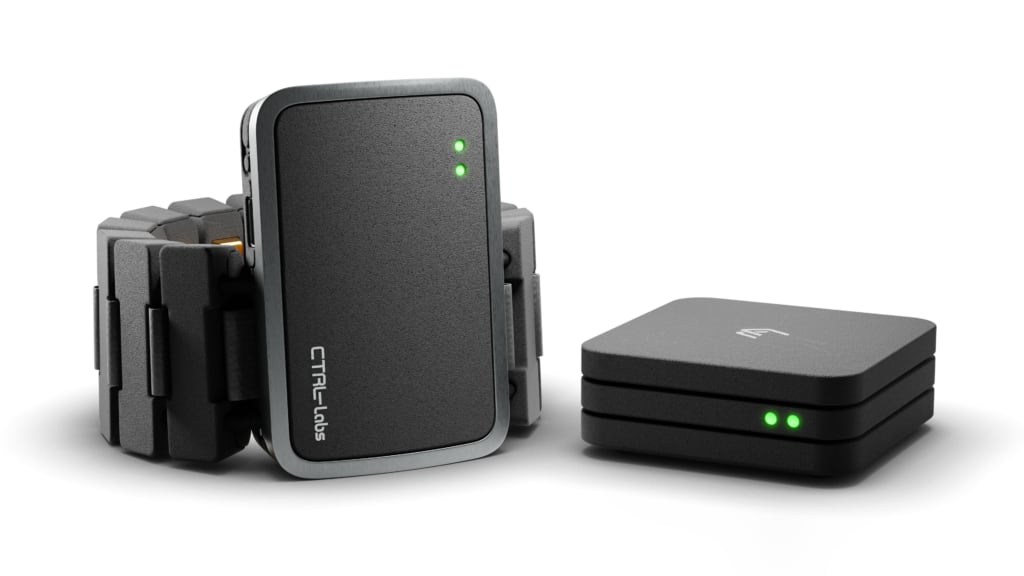Facebook Buys CTRL-labs Brain Interface Startup
Get Tom's Hardware's best news and in-depth reviews, straight to your inbox.
You are now subscribed
Your newsletter sign-up was successful
Facebook announced Monday that it bought CTRL-labs, a New York startup that develops technology that allows people to control computer user interfaces with their minds. CNBC reported that, according to sources close to the deal, Facebook paid between $500 million and $1 billion for the company. The startup will join the Facebook Reality division, which includes Oculus VR as well as augmented reality and brain-reading experiments.
CTRL-labs was developing a wristband that can receive electrical signals from your spine. Andrew Bosworth, Facebook’s Vice President of AR/VR, talked about how this works in a post about the acquisition:
“You have neurons in your spinal cord that send electrical signals to your hand muscles telling them to move in specific ways such as to click a mouse or press a button. The wristband will decode those signals and translate them into a digital signal your device can understand, empowering you with control over your digital life. It captures your intention so you can share a photo with a friend using an imperceptible movement or just by, well, intending to.”
Earlier this summer, Facebook presented a similar brain-computer interface technology on which it’s been working for the past two years. However, unlike the CTRL-labs technology, which involves using a wristband, Facebook’s technology was a little more invasive -- it required electrode implants in people’s brains. People would probably be more likely to trust something they can wear over something they have to stick in their brains.
Can You Trust Facebook?
Facebook is an advertising and social media company that makes money off of tracking as much about you online activities as possible. It then uses that collected data to attempt to predict the things in which you may be interested next, so the advertisers using its ad platform can target you more effectively. Being suspicious of the company's efforts to read people's minds--even in as limited a way as this--wouldn't be out of the question.
After all, the datr cookie was initially not supposed to be used for advertising purposes, nor were various other “security features” that Facebook lured users into using, either. However, Facebook has shown again and again that it considers very little (if any) of the data you shared with it to be sacred and not to be used for advertising purposes. How much data might the company be able to glean from a brain-computer interface like CTRL-labs'?
Get Tom's Hardware's best news and in-depth reviews, straight to your inbox.
Lucian Armasu is a Contributing Writer for Tom's Hardware US. He covers software news and the issues surrounding privacy and security.
-
TR0767 FB has become the Social Media version of Ma Bell. I say it needs to be broken up, just like AT&T was back in the day....Reply -
bit_user Reply
Perhaps, but breaking up Bell Telephone didn't ultimately solve that much. The children just gobbled each other up, and now we're back to a situation where Verizon is almost as bad.TR0767 said:FB has become the Social Media version of Ma Bell. I say it needs to be broken up, just like AT&T was back in the day....
I don't object to a potential break-up to reconcile some acquisitions that probably shouldn't have been approved, but I think regulation of social media is a better overall solution. The problem is that breakups are easier for politicians than coming up with (and actually passing bills on ) good regulation. -
TR0767 Replybit_user said:Perhaps, but breaking up Bell Telephone didn't ultimately solve that much. The children just gobbled each other up, and now we're back to a situation where Verizon is almost as bad.
I don't object to a potential break-up to reconcile some acquisitions that probably shouldn't have been approved, but I think regulation of social media is a better overall solution. The problem is that breakups are easier for politicians than coming up with (and actually passing bills on ) good regulation.
You're probably right about that. I just hate seeing the government is more and more of our lives. Freedom is just about gone in this country it seems. But I won't get started on that issue :) -
bit_user Reply
Yeah, regulating social media without running afoul of the 1st amendment probably won't be easy. However, I believe it can be done in a way that could actually protect speech more than the platforms are currently doing.TR0767 said:You're probably right about that. I just hate seeing the government is more and more of our lives. Freedom is just about gone in this country it seems. But I won't get started on that issue :)
That said, I'm not optimistic. It's one of those problems that's easy and popular to criticize, but difficult to fix or improve.
